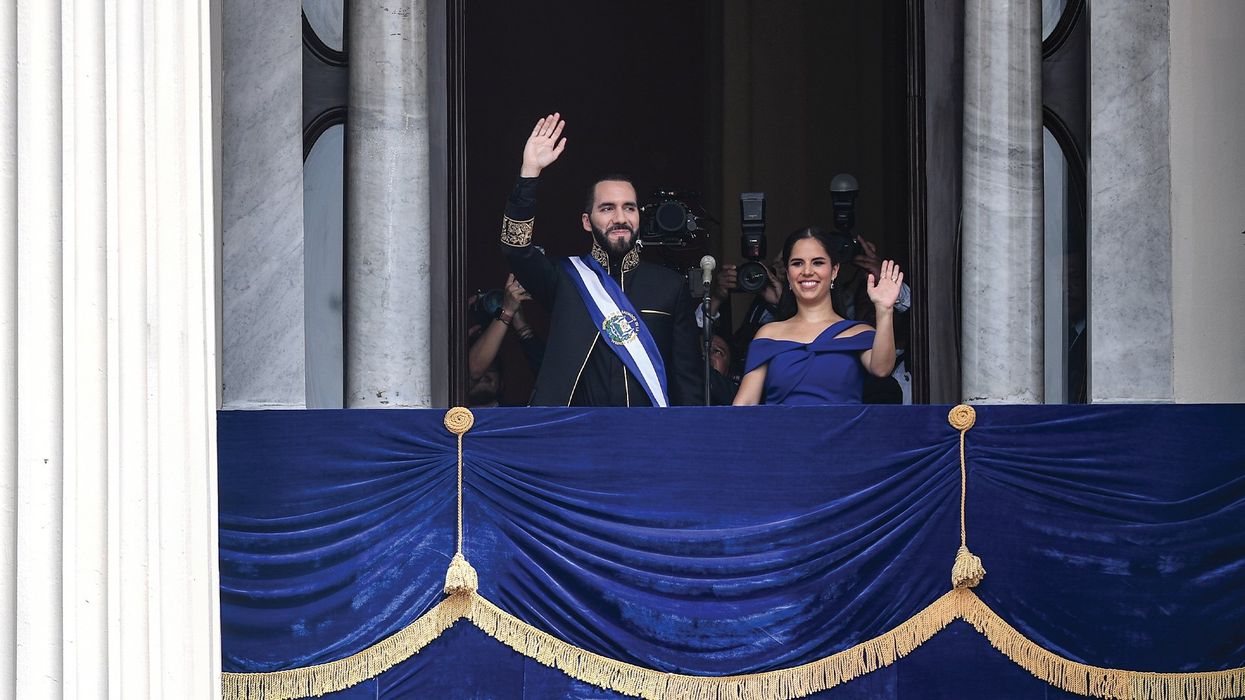
President Nayib Bukele, flanked by his wife Gabriela, is inaugurated into his second term after winning over 84% of the vote. (Getty)

Renegade Yankees romance a country reborn.
The moment I exit the airport, the torrid, humid air hits me square in the face—a tropical uppercut that leaves me dazed but strangely exhilarated. I light up an American Spirit, letting the smoke curl around me as I take in the scene. The cacophony of the chaotic Central American airport rushes over me, a disorienting symphony of shouts, honks, and the ever-present hum of a place that never quite sleeps. I’ve barely escaped a Colorado blizzard, slipping out on a flight a day early, with no immediate plans and no clear idea of what the hell I’m doing here.
El Salvador. A country teetering on the edge of something—something big, something new. I’m here to attend a health conference, or so the invitation said, but really, I’m here to witness the so-called transformation. But transformation into what? As I drag on my cigarette, I catch sight of Bukele’s grinning face plastered on a wall, decked out in a sash, his wife beaming beside him. The whole scene has a touch of the kitschy dictator about it. But isn’t that what I’m here to figure out?
I decide the first order of business is to find a place to crash. I flag down the nearest taxi—a battered relic that looks like it’s held together by duct tape and prayers. As I slide into the back seat, I can’t help but question briefly the wisdom of a white guy in a linen suit hopping into an unmarked taxi at midnight in El Salvador. There’s a fleeting moment of doubt, a whisper in the back of my mind that maybe this isn’t the smartest move. But I push it aside. I’m here now, and there’s no turning back. So I roll with it, leaning back as the taxi lurches forward, praying that a hotel room awaits me somewhere out there.
A country teetering on the edge of something—something big, something new.
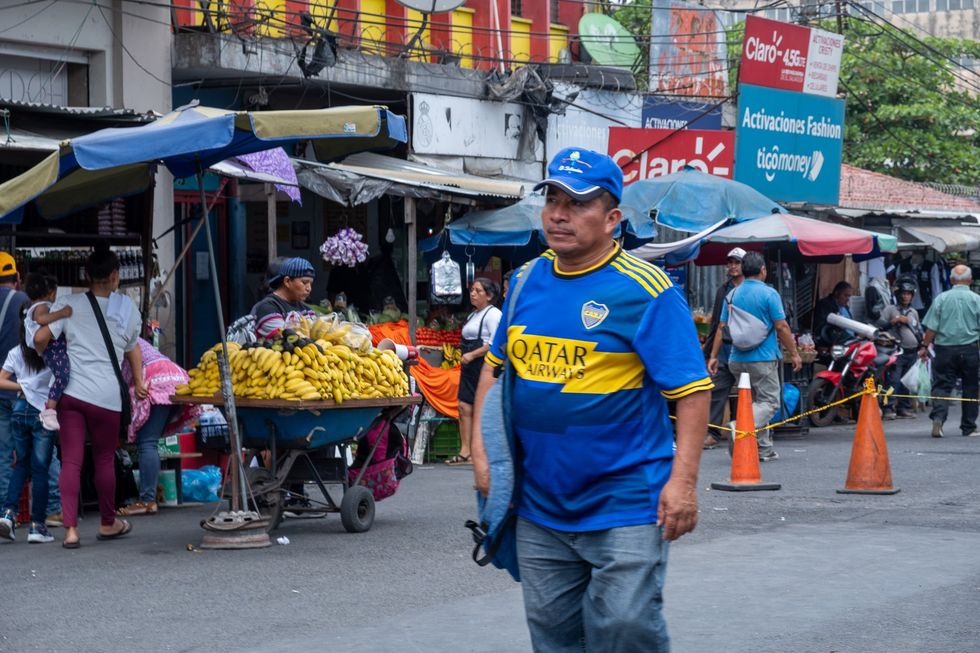
On the plane, cruising at 35,000 feet, reclining in the cramped luxury of coach, I decide to crack open a little light reading—State of War: MS-13 and El Salvador’s World of Violence by William Wheeler, a journalist from that hallowed institution, the New York Times. And let me tell you, dear reader, this was a choice so profoundly ill-conceived, so stupendously misguided, it could only have been born of desperation—or the woefully limited selection of El Salvadorian titles on Audible.
I did manage to glean a nugget or two. MS-13, the fearsome gang that’s become synonymous with mayhem and murder, was not born in the turbulent streets of San Salvador but in the sun-drenched ghettos of Los Angeles. It’s only a little hyperbolic to say that America’s chief exports are violence and movies about violence.
But then the book takes a nosedive into what can only be described as a retarded travelogue, swinging wildly between pedantic naivete and a kind of misguided do-goodery. Wheeler is shocked—shocked!—that the government police might have bumped off an MS-13 member and then had the audacity to cover it up. Oh, the horror! Will no one shed a tear for the poor, misunderstood Central American death squad soldier?
In a country with the highest murder rate on the planet, this one particular death apparently deserved half a book’s worth of hand-wringing. We’re introduced to the family, told that he was a good boy, really—just a bit misunderstood. Aren’t they all? But when it comes to the truly wicked—businessmen and police, of course—the judgment hammer falls hard and fast. No room for nuance there. And just when you think it can’t get any worse, Wheeler wraps up his tragicomedy with a call for more afterschool programs. Yes, folks, arts and crafts, and a good game of football—these are the tools that will keep young Salvadorians from descending into homicidal madness. Talk about the longhouse. The fact that people this profoundly stupid are wandering the globe, proselytizing on behalf of the Cathedral, is almost funny. Almost.
But the joke sours when Wheeler casually dismisses MS-13’s use of rape as a weapon with little more than a rhetorical shrug. And when he praises the gangs for their community service—forcing deadbeat dads to pay child support. This, it seems, is the liberal order’s grand solution for a nation overrun by murderous gangs. But then came Bukele, an outsider with a radically different plan—and the rest, as they say, is history.
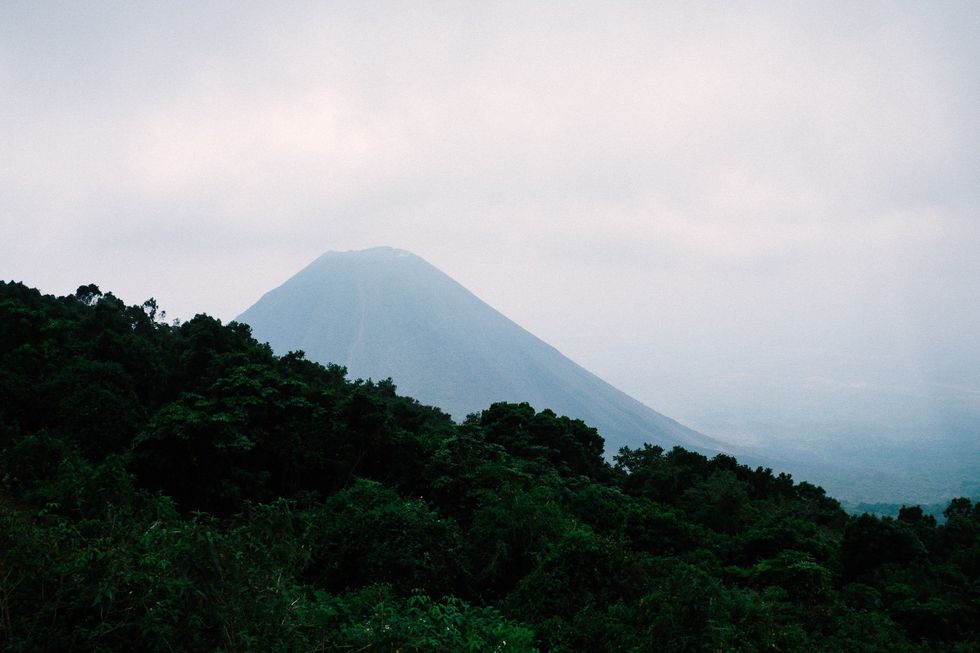
So, after dropping my bag in a modest hotel room, I decide to throw caution to the wind and take a leisurely stroll through the historic downtown of San Salvador. Yes, I’d read the reports and heard the reassurances—El Salvador, the phoenix rising from its own ashes, now boasting a murder rate lower than Canada’s. Canada! The land of maple syrup and Mounties, where the most dangerous thing is slipping on ice. But still, there’s a nagging little voice in the back of my head, the echo of decades of terrifying tales that paint this place as the Wild West with palm trees. From Rick Steves, that perennially chipper travel guru–his 2011 guide reads more like a dispatch from a war zone than a travelogue—cautionary tales of tourists who wandered too far and found themselves in the wrong kind of adventure.
And here I am, in the thick of it, a white guy with a shiny new camera slung around my neck, no bodyguard in sight, traipsing through the streets like some blissfully ignorant tourist who missed the memo.
But then—just like that—something almost magical happens. The fear, the apprehension; it starts to melt away. I realize, as if waking from a fever dream, that it’s completely, utterly safe. I’ve been around the block a few times—South America, Central America, and the Middle East. Third-World slums that make the hairs on the back of your neck stand on end. I know danger when I see it. But here? All I see are people going about their business, selling fruits, chatting with neighbors, and kids kicking a soccer ball down the street.
I get the occasional curious glance, maybe a double take from someone wondering what on earth this gringo is doing here, but that’s it. The tension evaporates, replaced by a kind of serene realization that the old stories don’t quite fit the new reality. It’s a place transformed, a city reborn, and here I am, witnessing it firsthand, with nothing more to worry about than where I’ll find my next cup of coffee.
I begin to wander the market, that sprawling, pulsating heart of the city, where life spills out in every direction—vendors hawking fruits and vegetables, their colors vivid against the dusty backdrop, while others peddle meat of questionable origin, hanging in the tropical heat like a dare. Everywhere I turn, there are toys and trinkets, knockoff watches gleaming in the sunlight, and piles upon piles of clothing. But what catches the eye most are the countless shirts, posters, and hats emblazoned with the face of Bukele, the man who has become both the symbol and the savior of this nation’s rebirth.
I walk for miles through this labyrinthine market, winding through alleys and side streets, losing myself in the maze. And as I wander, I can’t help but notice something remarkable—the smiles, the sheer joy on the faces of the people. It’s as if some dark, oppressive cloud has finally lifted, and the bright sunshine of law and order has returned, bathing the city in a new light. The air is thick with a sense of renewal, of a city shaking off its past and stepping into a brighter future.
Construction is everywhere, the telltale sign of a place on the rise. New buildings sprout from the ground like weeds after a rainstorm, scaffolding reaching skyward, promising a skyline transformed. There’s a saying in Spanish plastered across the government-funded construction sites, a bit of gritty wisdom for the ages: “Si ellos no roban el dinero es suficiente.” Roughly translated, this means: “If they don’t steal, the money is enough.” It’s a simple, biting truth that cuts to the core of El Salvador’s problems, because lawlessness isn’t just a matter of crime on the streets—it’s a poison that seeps into the soul of society, breeding corruption at every level. Fixing a failed state takes more than slogans and crackdowns; it demands that people buy into a vision, that they see themselves as part of something greater, something better.
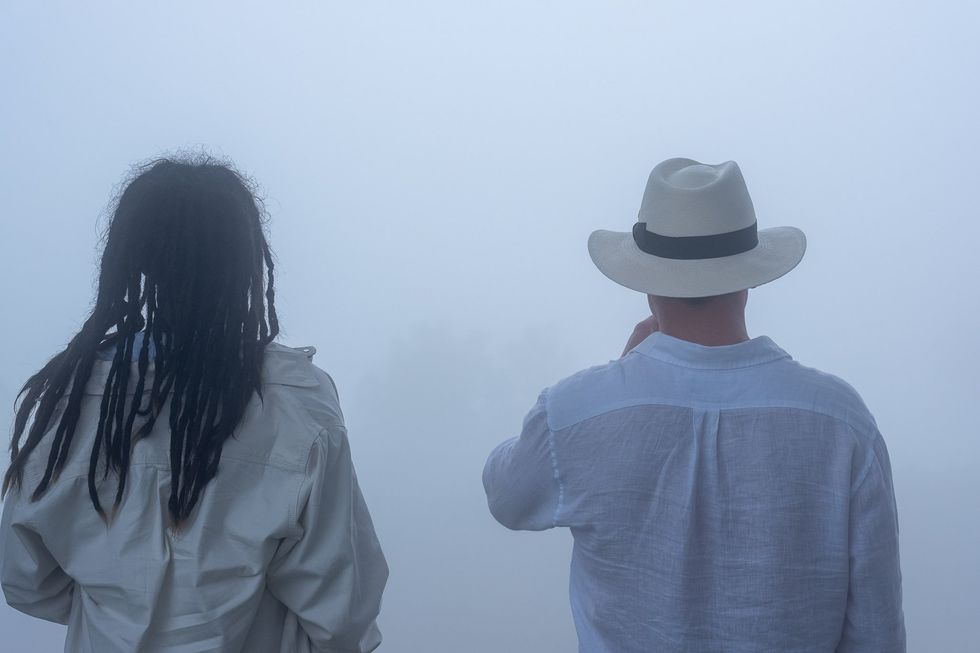
I’m here, ostensibly, to cover the Age of Light conference, an event put on by the Palestra Society—a loose, enigmatic collection of mostly young Americans who rode the Bitcoin wave to wealth and are now looking to channel that success into something more meaningful. They’re here to transform El Salvador, to light the way forward. The conference promises talks from thought leaders on everything from light therapy to genetic engineering, medical freedom, recent breakthroughs, and, of course, El Salvador’s burgeoning role in the world of medicine. It’s a bold agenda, a heady mix of futurism and idealism, all set against the backdrop of a nation trying to reinvent itself, shake off its dark past, and stride confidently into the future.
As the evening descends, I arrange to meet with a figure known only by his cryptic moniker—Uncle Rockstar.
We rendezvous at an absurdly upscale steakhouse, where the waiters glide silently, and the filets are served with the precision of a Swiss watch. Over perfectly seared steaks and martinis that hit like a smooth punch, Uncle Rockstar spins his tale—a journey that begins in the crumbling aftermath of Yugoslavia, in Serbia, and winds its way to the glittering shores of America, that fabled land of opportunity where the ambitious and the audacious carve out their fortunes.
He never gives me his real name—no, that would be too easy, too pedestrian for a man who navigates the world with mystery. But through the haze of martinis and the low hum of the steakhouse’s ambient noise, I piece together the portrait of a man with a mind that moves at a thousand miles an hour. He’s the kind of guy who saw the potential in Bitcoin before the rest of the world even knew how to spell it, getting in on the ground floor of a revolution that’s still shaking the foundations of the financial world.
As the conference begins, a mist rolls in from the mountains, wrapping us all in a soft, ethereal shroud. It’s surreal, stunning—like the world has decided to hold its breath just for us.
There’s something about him—an air of generosity, a twinkle in the eye that suggests he’s in on the cosmic joke of it all. He’s seen the world in all its chaotic glory and, rather than retreat, he’s embraced it, laughing along the way. As we dine, I can’t help but marvel at the strange alchemy of the evening—a meeting of minds in a world where identities are fluid, where the digital and the actual blend into something new and unexpected. Uncle Rockstar—a name, a persona, a mystery wrapped in a steakhouse conversation—leaves me with the impression of a man who’s mastered the art of living on his own terms.
“There are so many people that are trying to free themselves, cut those fiat chains they’re bound by, and the least I can do is code technology that they can use or be a resource for them,” he explains.
So, after a leisurely dinner, we indulge in a little late-night Americana—a stroll over to McDonald’s for some ice cream. Nothing like a taste of the familiar when you’re in the middle of a Central American experiment in economic revolution. We saunter up to the counter, ready to make our 21st-century transaction, Bitcoin at the ready, feeling every bit the part of the modern digital nomads. But alas, there’s a hitch—something in the ether isn’t connecting, and our attempt to pay in the future’s currency is met with a blank stare from the teenagers working the till. They might as well have been asked to accept seashells. Fiat cash—good old American greenbacks—still reign supreme in this land of experiment and ambition.
And why not? El Salvador’s been running on the American dollar since 2001, when it swapped out its colón for Uncle Sam’s currency, tying its fate to the mighty buck. But now, under the watchful eye of Nayib Bukele, the country has taken a daring leap into the digital unknown, amassing a strategic reserve of 5,700 Bitcoins, nestled away in a cold vault like some treasure out of a cyberpunk fantasy. And not just that—Bukele has made Bitcoin legal tender, a bold stroke that has sent ripples through the global financial order.
Yet here we are, standing in a McDonald’s where the digital future hasn’t quite reached the register. Adoption of Bitcoin has been slower than Bukele might have hoped, but it’s drawn in a fascinating mix of true believers—crypto crusaders who see El Salvador as a blank canvas, a place to sketch out their vision of a decentralized utopia. Spending a week with these dreamers, these pioneers of the digital frontier, would stretch the limits of what I thought possible in a nation-state, would challenge every preconceived notion I had about currency, sovereignty, and the very fabric of modern society.
Because here’s the thing—this isn’t just about Bitcoin, or dollars, or any other form of legal tender. It’s about rewriting the rules, breaking free from the old ways of thinking, and forging something entirely new. And in El Salvador, of all places, the grand experiment is underway.
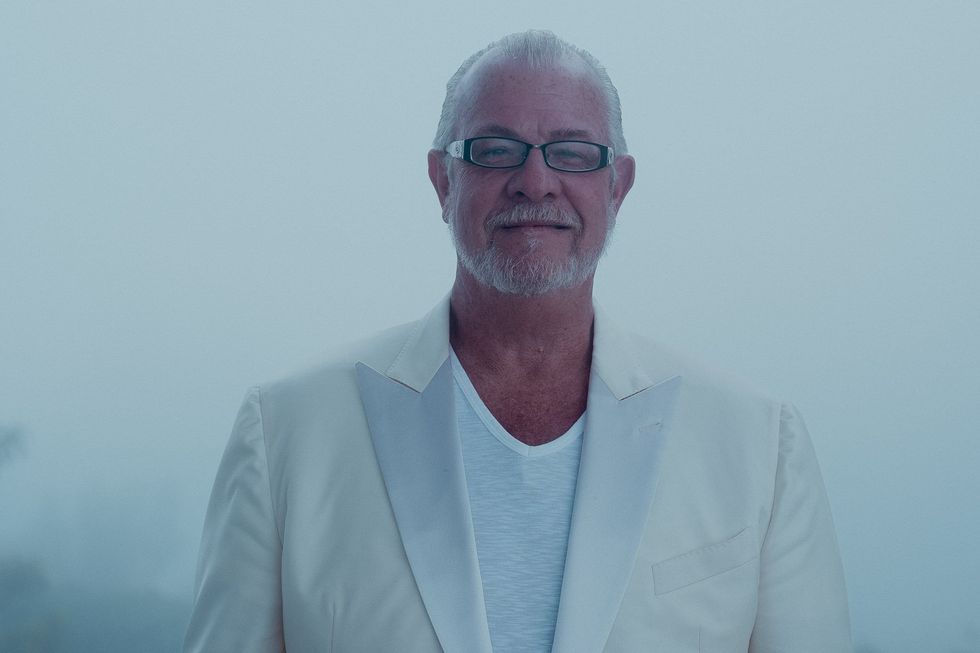
The next day, I find myself boarding a shuttle for a private dinner, the prelude to the grand health conference about to unfurl. The shuttle lurches and weaves its way out of San Salvador’s sprawling, chaotic web and begins to climb into the hills that cradle the city. As we ascend, the urban clamor fades, replaced by the quiet glow of wealth and power. We pass through a gate—serious business, this one— flanked by guard towers with armed sentinels staring down at us. Beyond the gate, the landscape morphs into a display of Central America’s staggering wealth disparities, a contrast so sharp it could slice you. Palatial estates, each one more ostentatious than the last, rise from the hills like monuments to the privileged few who rule.
Finally, we arrive at a spectacular home perched atop a mountain, offering sweeping ocean vistas that stretch to the horizon. I step out of the shuttle and, as I walk into the house, my breath catches—this place is a marvel, a masterpiece, one of the most stunning and original feats of architectural bravado I’ve ever encountered, whether in life or in the glossy pages of design magazines. They call it the Hour House, a creation of Eva Hinds, the Pritzker Architecture Prize winner. And what a creation it is—a dazzling triumph of modern design that doesn’t fight against the rugged topography but rather embraces it, integrates it. Glass walls slide open, dissolving the boundaries between indoor and outdoor, turning living spaces into communal sanctuaries framed by sleek surfaces of metal, wood, and concrete. The entire roof is a living, breathing carpet of natural grass, merging the house with the mountain itself. As I stroll through the party, I can’t help but wonder if the Picassos on the wall are real or just another layer of the opulent illusion.
We’re here tonight for an intimate dinner with Dr. Jack Kruse, the headline speaker at the Age of Light health conference. He’s staying at this architectural wonder with a couple who’ve fully immersed themselves in his health regimen, living proof of his theories— or so they believe. As the weekend unfolds, it becomes increasingly clear that most of the attendees share a similar devotion. Dr. Jack, as his disciples affectionately call him, is a character straight out of the great American novel, the kind of absurd and fantastic figure that only this land of contradictions seems to produce. He’s a barrel-chested man, his bright white hair gleaming as he greets me with warm exuberance, wearing shorts, a T-shirt, and a purple tuxedo jacket.
A neurosurgeon by training, Dr. Jack found himself at a crossroads in 2007. A health scare, the kind that stops you cold, caused him to reevaluate everything he thought he knew about health, the American medical industry, the whole damn system. You start to see the cracks, the machinery behind the curtain, and suddenly, it all looks a lot less like science and a lot more like business, big business.
The whispers follow him like a shadow—rumors that he’s worked with the likes of Ye, the enigmatic Rick Rubin, even Twitter’s former CEO Jack Dorsey. And now, the spotlight’s on him again, this time because Robert Kennedy Jr.’s running mate, Nicole Shanahan, is catching heat for her association with his teachings. Dr. Jack has become a lightning rod, a figure who has amassed not just wealth—yes, there’s talk he made a killing in Bitcoin, a fortune stacked away in the digital ether—but also influence, the kind that ripples through the underground currents of society.
And, like so many of the disillusioned, the ones who’ve peeled back the layers of the American dream to find the rot underneath, he packed his bags during the great COVID exodus and made his way to El Salvador, chasing greener pastures and a government that didn’t look at him like he was some sort of pariah for thinking differently.
As I sit and listen, the connections start to click into place—there’s an undeniable overlap between those who distrust the financial system, who see the dollar as just another tool of control, and those who’ve lost faith in the mainstream health system. It all makes sense in a twisted, conspiratorial kind of way, like pieces of a puzzle that fit too neatly to be mere coincidence. Here in El Salvador, this unlikely haven, the disillusioned have found each other, united by a shared belief that the old systems are broken, that there’s got to be another way.
Climate change, civil war, societal collapse—it’s a bipartisan effort, really, this foretelling of doom, each side competing to see who can paint the grimmest picture. And it’s exhausting. Utterly, bone-deep exhausting.
The people I chat with at the party speak about Dr. Jack with such awe and reverence that I wonder if I’ve wandered into some strange cult, one that’s traded the grim austerity of communes for sleek, minimalist furniture and an endless flow of rosé that would make even the most skeptical among us soften around the edges. As I navigate the churning waters of this fascinating assembly, I keep my ears open like the champagne flutes they seem to refill without end. These are not just partygoers; no, they are the new vanguard— young, affluent, suspicious of anything that smells of the mainstream. They speak of their ailments, each story more tragic than the last, and yet they recount them not with despair but with a certain glow—as if these miseries were but stepping stones on the path to salvation. And who, might you ask, is their savior? None other than Dr. Jack.
He’s a man who, by all accounts, has dedicated years to the noble pursuit of healing the sick, but not in the way that our antiseptic hospitals would have it. Dr. Jack believes— no, he knows—that modern medicine is a rickety, corrupt machine, designed to churn out profits rather than cures. Hard to argue with that, especially as you sip another glass of rosé and nod along. But then, there’s the crux of it, the central thesis that’s a bit like a high-speed train—you see it coming, you understand it’s powerful; but grasping it fully? Ah, that’s another matter entirely.
Dr. Jack, the man himself, preaches with the fervor of a prophet who’s seen the light— and I mean that quite literally. According to him, the modern world is hopelessly, dreadfully out of whack, spinning off its axis. And the culprit? That cold, soulless blue light that streams from our screens, the very light that we’ve become enslaved to, tethered like digital serfs to our glowing masters. Dr. Jack calls for nothing less than a revolution, a bold march into the sunlight—the real sunlight!—where we can reclaim what we’ve lost. He declares sunglasses the tools of the devil, barriers between us and the life-giving rays we’ve foolishly shut out. And shoes? Forget them. Kick them off, he says, and reconnect with the earth beneath your feet. It all seems so absurd, so delightfully, deliciously absurd; and yet there’s something undeniably magnetic about it.
When did we, as a species, become nothing more than cubicle drones, shuffling papers and pushing emails, our lives reduced to digital transactions and artificial light? When did we stop being human, stop feeling the sun on our skin, the dirt between our toes? Dr. Jack’s message is a siren call to return to something primal, something real, a world where we aren’t just surviving—we’re truly living. And even though it all sounds a bit out there, a bit like the ravings of a man who’s spent too much time staring directly at the sun, I find myself wanting to believe, to buy into this strange, alluring vision of a life that’s more than just pixels on a screen.
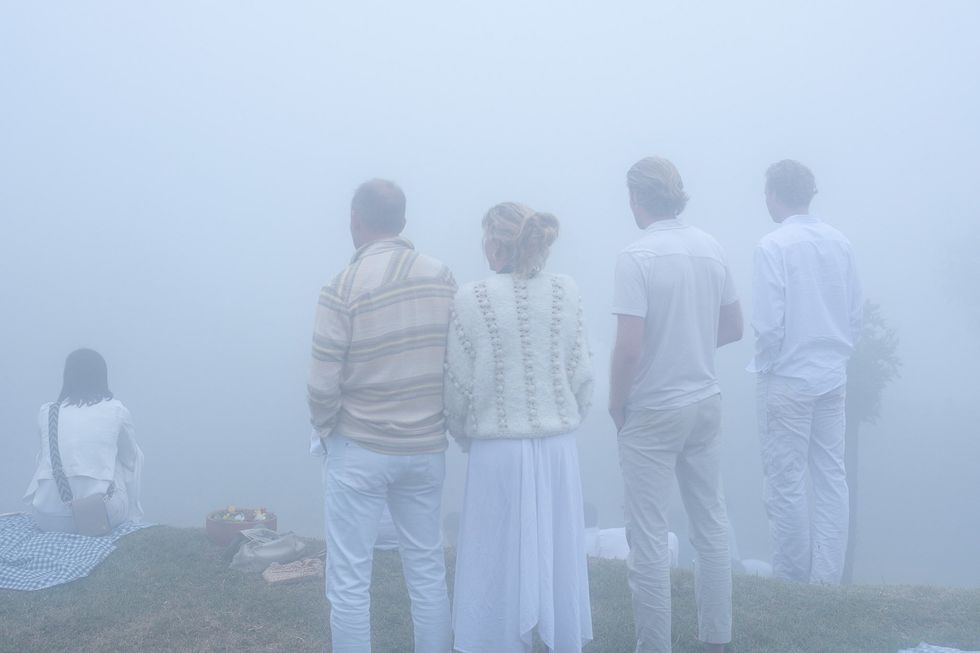
The Age of Light conference unfolds on the slope of a volcano, its ancient slopes rising from the lush, verdant rainforest below. We’ve all been asked to wear white, which only adds to the eerie sense that I’ve stumbled into something just a little too cult-like for comfort. And here I am, the journalist in the room, slithering through this pristine gathering like a snake in a nursery. They can smell it on me, and who could blame them? These people, medical doctors among them, have all found themselves disillusioned with the tidy, sterile promises of modern medicine. COVID, or the manufactured, “consensus”-based, “Scientific” response to whatever COVID really was, seems to have been the final straw, the catalyst that sent them searching for something better, some hidden truth buried deep in the jungles of El Salvador.
As the conference begins, a mist rolls in from the mountains, wrapping us all in a soft, ethereal shroud. It’s surreal, stunning—like the world has decided to hold its breath just for us. The speakers begin, one after another, presenting their visions of a new world—a world with computers that emit no blue light, and strange yellow glasses designed to block the digital glare that’s supposedly frying our brains. I hear the stories of a nurse whose life was turned upside down when she refused to get the vaccine and of a man who preaches the virtues of working out, not in the artificial confines of a gym but in the raw, untamed embrace of Mother Nature.
And then there’s Dr. Jack, larger than life, preaching to the converted about this paradise they’re building, a new world rising from the ashes of a failed state. He’s in his element, extolling the virtues of this bold experiment, this reinvention of a nation that’s rewriting its own story.
As evening falls, the sun dips low, casting a golden light across the clouds that cling to the mountainside. It’s time for the man of the hour—Bukele. But urgent matters of state have kept him from gracing us with his presence, so instead, he’s sent his brothers and a prerecorded video message, delivered in polished English, that plays on a screen above us. His speech is fascinating—a glimpse into the mind of a man who’s reshaping a country with the audacity of a visionary and the precision of a chess master.
The attendees hang on every word, as if Bukele himself were standing there in the mist with us, outlining his blueprint for the future. It’s not just a speech—it’s a call to arms, a manifesto for a new way of living that’s as radical as it is enticing. And, as the night closes in, I can’t help but wonder— what if, just maybe, they’re onto something?
“Do they have my children’s health in their best interests? What is their interest? Probably making a lot of money. So this political correctness of this new religious fundamentalism that is not based on God or any religion, but politicians, elites, power, money, the centralized medical system that Dr. Kruse talks about. And we are crafting a law. It’s going to be certified here in our law system to protect us, our children, or the children of our children and generations to come from this centralized medical machine, from the mainstream medical machine, and actually abide by the scientific method.
“And I know that the world is not looking like it’s going to a good place. But here, you can look that we’re going to a good place. You can feel it in the people. You can feel the vibe, the positivity. I don’t know how many places in the world will be a safe haven for the people, but we are sure aiming to, for El Salvador, to be a safe haven for authenticity, for freedom, and for the right, scientific advancements.”
It’s as if some dark, oppressive cloud has finally lifted, and the bright sunshine of law and order has returned, bathing the city in a new light. The air is thick with a sense of renewal, of a city shaking off its past and stepping into a brighter future.
In the evening, I find myself at a dinner table with a mix of entrepreneurs, locals, and Yusef Bukele, one of the brothers in the Bukele clan, a family with Palestinian and Lebanese heritage. Yusef, with his sharp features and sharper mind, lays it out plainly throughout the evening. “You can have the best intentions to run a society,” he says, leaning in as if to let me in on a well-guarded secret, “but without rule of law, none of it matters.” A succinct, almost surgical explanation of the brutal crackdown that snatched control from the monsters who had held this country in their grip and handed it back to the people.
The night wears on, and Sol Brah takes over the DJ booth, spinning his tracks late into the night. The music pulses through the air, a steady beat that feels like the heartbeat of this resurrected nation. As I sip my drink, I can’t help but think about what it means for an entire nation to rise from the dead, to claw its way back from the brink of oblivion, to stand tall again, not just surviving but thriving. It’s the kind of story that defies belief, the kind that makes you wonder if maybe, just maybe, the impossible isn’t so impossible after all.
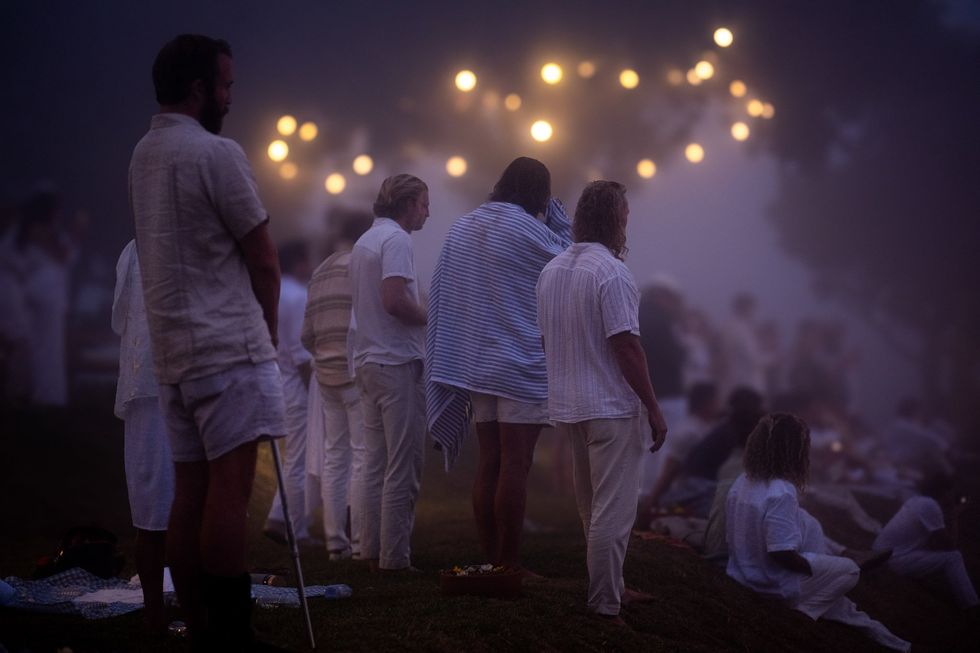
Ah, the morning descent from the volcano— quite literally, if you please, with the crisp mountain air slicing through the haze of last night’s wine-fueled reverie. I’m clutching a battered cup of coffee like it’s a lifeline, chain-smoking my way through a pack of cigarettes as if each drag might pull me a little further from the clutches of the throbbing hangover. But, as the bus winds down the slopes, my thoughts are spiraling just as quickly, trying to wrap themselves around the kaleidoscope of ideas, the parade of fascinating souls I’ve encountered over the last 72 hours.
It’s hard not to feel a certain buoyancy, a kind of helium lightness that lifts me out of my seat, as I take in the sheer optimism radiating from this place. It’s almost palpable, this collective belief in a brighter tomorrow, in possibilities still unexplored. There’s an infectious quality to it, this hope, this forward looking gaze that seems to be the very air they breathe here.
Contrast that with the mood back in America—oh, America! Land of the free, home of the perpetually anxious. The discourse there, if you can even call it that, is a dirge, a constant lament for all that we’ve lost, all that’s slipping through our fingers like so much sand. We’re a nation hunched over our screens, doom-scrolling, hate-reading, and shitposting ourselves into a stupor, clutching our pearls as we await the next disaster, the next cataclysm, the next headline screaming that the end is nigh. Climate change, civil war, societal collapse—it’s a bipartisan effort, really, this foretelling of doom, each side competing to see who can paint the grimmest picture.
And it’s exhausting. Utterly, bone-deep exhausting.
So here I am, basking in the warmth of a place where the future isn’t some ominous shadow looming on the horizon but a bright, beckoning light. Just for a moment, it’s refreshing—no, it’s downright intoxicating—to be somewhere where hope is not just an idle fancy but the national creed.
I am bouncing along on this bus, when I find myself in conversation with Dr. Benjamin Braddock. Of course, the good doctor isn’t actually a doctor, at least not in the whitecoat-and-stethoscope sense. No, Dr. Benjamin Braddock is the online moniker of a man who’s become something of a cult figure on X, that buzzing hive of opinions and provocations. His followers hang onto his every unfiltered take on health, culture, politics—whatever happens to be swirling in the zeitgeist.
And here he is, in the flesh, absurdly tall, towering over the bus seats like some kind of lanky Southern colossus. There’s a genteel quality about him, a sort of slow drawl in his demeanor, the kind of thing that makes you think of front porches and sweet tea, even as his writing cuts through the noise of modern discourse like a scalpel.
He’s one of the key figures behind IM1776, the magazine that’s quickly become the intellectual touchstone for this new, wild political era we find ourselves in—an era where the old labels have been tossed out the window and new ones are being hastily scribbled down in their place. The magazine is part manifesto, part battle cry.
And, as we rumble along, I can’t help but feel that I’ve stumbled into the presence of a new kind of thinker—a modern-day pamphleteer for an age that’s gone decidedly off-script.
Braddock explains what brought him here.
“I followed his advice and I switched everything back in my house to incandescents. And I would wear blue blockers or change the screen settings to try to warm it up. Just tapping down on blue light wherever I could. And once I did that the migraines disappeared. So it was not a pharmacological solution, it was not a diet, there was not an exercise solution, it was a light solution.”
Braddock sums up Dr. Jack succinctly.
“The more I’ve researched, the more I’ve realized, like, you know, this guy is really a genius. And, you know, like all geniuses is a bit of a character. I mean, the world is so boring. It’s fun to have more characters. He’s not saying, like, ‘buy this thing.’ He’s saying, like, ‘go out in the sun. That’s free. Stand on the ground. That’s free.’”
We stare out as a Jetta passes us with a giant swastika on the back window.
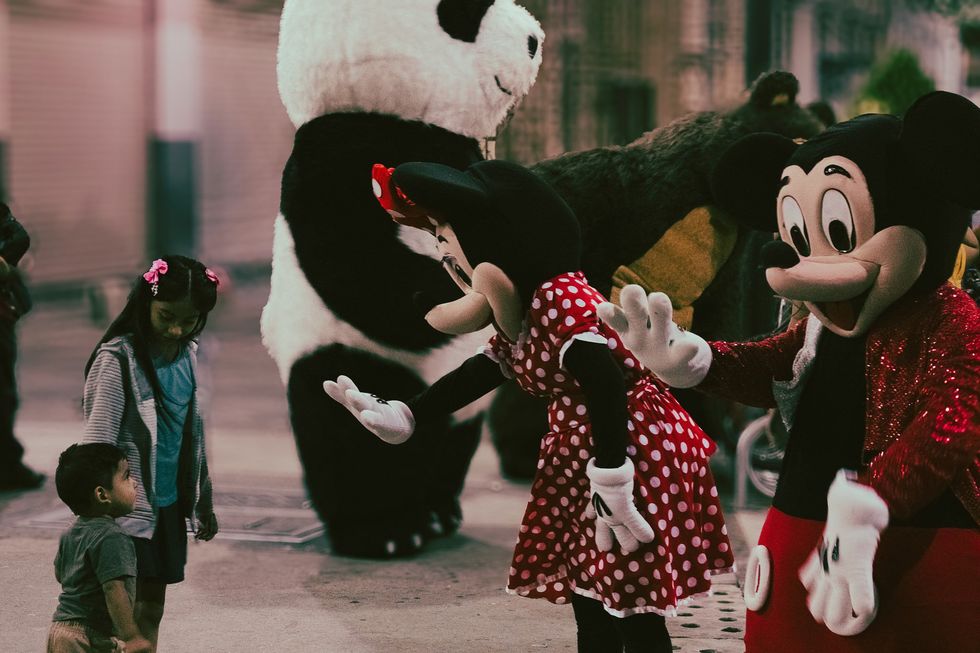
This was it—the grand finale, the last hurrah of the Palestra conference, and we all gathered for a final speech at the newly minted National Library of El Salvador. The place is a marvel, a gleaming monument of glass and steel that rises above the central square of San Salvador like a beacon of modernity. It stands there, bold and brilliant, a stark reminder of just how far this little country has come in such a short span of time. The library is more than just a repository of books; it’s a sanctuary for children, a symbol that Bukele wielded like a scepter during his campaign to showcase what his presidency was all about. Of course, it was built with a bit of help from the Chinese, and the subtle reminders of this fact are scattered throughout the building, a quiet nod to the global strings that pull this new El Salvador forward.
Dr. Jack takes the stage and, as usual, he dominates, commanding the room with his vision of the bright, gleaming future—of the country, of his followers, and, naturally, of Dr. Jack himself. My cynical journalist instincts twitch, ready to tear him down, to dismiss him as just another charlatan basking in his own self-importance. But I can’t. The man is telling people to stop staring at screens all day and get outside, to soak up the sun and take a walk. In what world is that bad advice? Whether or not blue light from our beloved devices is the root of all modern maladies, I can’t say. But if it’s helped the people here, who am I to mock it? Who am I to scoff at a man encouraging something as simple and wholesome as reconnecting with nature?
I take my turn on a panel about the future of journalism. Ah, journalism—let’s be honest, that ship sailed long ago. We’re just a few ragged souls clinging to the floating debris, trying to make sense of a world that’s moved on to vibes and tweets, where the news cycle spins faster than the eye can see. Don’t these people know the future is in 280 characters and AI, not carefully crafted prose?
After the event, we retreat to the backroom of a beautiful old bar, the kind of place that proudly refuses to bow to modernity’s demand for air conditioning. We sip on rum and ice, letting the night’s warmth wrap around us, basking in the glow of a week spent in a country forging a new way of living, a new way of being. As we finish, I stroll through the square with Dr. Benjamin Braddock, and we watch families enjoying a serene Sunday evening, buying snacks, watching their kids play under the soft glow of streetlights. Braddock tells me that walking here would have been a fool’s errand a year ago, far too dangerous. But now? Now the square is alive with people, with kids laughing as they chase after costumed figures dressed up like Mickey Mouse, handing out candy.
I’m not entirely sure what magic has taken hold of this place, what alchemy has transformed it, but for the love of God, can we bottle it up and ship it back to America?
Peter Gietl is the managing editor of Frontier and Return. He lives in Texas.